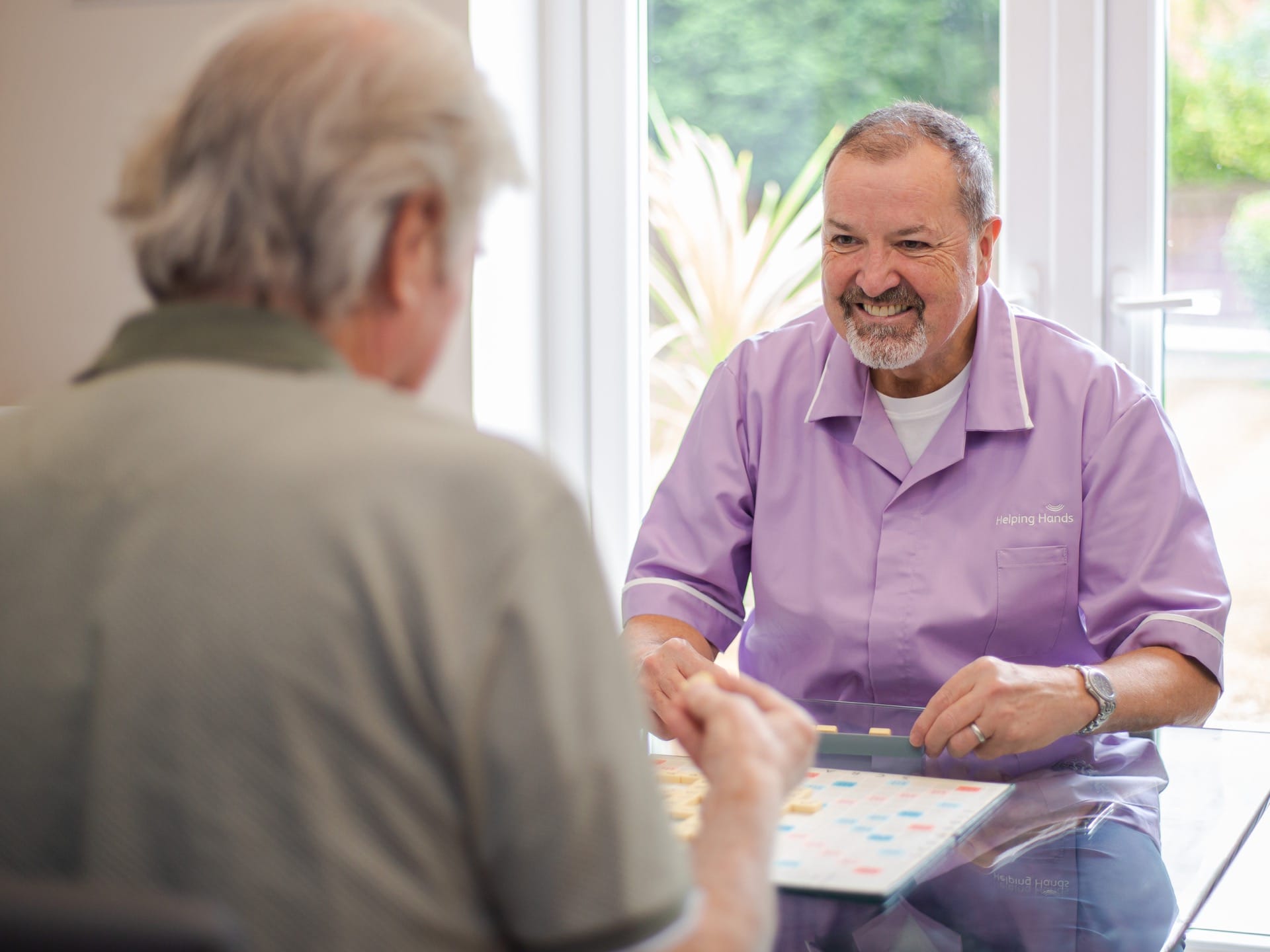Tips for Emotional Well-Being in the Elderly

Psychological challenges for the Elderly
Psychological challenges can present at any age. However, for the elderly, there can be a higher risk of social isolation and loneliness because of physical illnesses that may prevent them from easily leaving their home. Family members mean well but busy lives and physical distance can prevent them from being able to spend as much time with their elderly loved ones as they’d wish to, which is where care at home from Helping Hands can make an enormous difference. Knowing that there is someone calling regularly or even living with your loved one and supporting their physical and emotional well-being is reassuring for all the family, no matter how far away they live. And because all of our visiting and live-in care is fully regulated by the Care Quality Commission and the Care Inspectorate Wales, our customers are always in the very best hands.

Loneliness
According to the Marmalade Trust, who run Loneliness Awareness Week each year, loneliness is defined as “a perceived mismatch between the quality or quantity of social connections that a person has and what they would like to have.” Loneliness is reported to have the same detrimental effect on a person’s health as smoking 15 cigarettes a day, according to the US Surgeon General.
Depression
According to the World Health Organization (WHO) “Some older adults are at greater risk of depression and anxiety, because of dire living conditions, poor physical health or lack of access to quality support and services.” Depression can be challenging to live with at any age but especially in older people due to potential limits in physical ability and a lack of accessible support services available.
Anxiety
It’s a reality that “Many older people are carers of spouses with chronic health conditions, such as dementia. The responsibilities of such care can be overwhelming and can affect the carer’s mental health.” (WHO) Anxiety about what will happen to the other person if the carer’s health declines can affect both parties and lead to undue stress. This can compound the situation and lead to a continual ‘loop’ of anxiety.
How Can You Help?
Supporting older people in our lives to remain physically and emotionally active is crucial. “At this stage of life, meaningful social activities can significantly improve positive mental health, life satisfaction and quality of life; they can also reduce depressive symptoms.” (WHO) Helping older people to access local support services is key. Befriending services are offered by organisations such as Age UK, both face-to-face and over the telephone. Local colleges and leisure centres often offer accessible programmes suitable for seniors too.
Physical activity
Any type of physical activity can help to lift mood, as feel-good endorphins are released. Regardless of physical limitations, getting outside into the local community can benefit all of us. Even if a person isn’t able to take themselves outside, they may appreciate being supported to get out and about. There are also accessible sports for those people more able, such as walking football or walking netball.
Games
Even if going out and getting exercise isn’t a viable option, playing games at home is still good for hand-eye coordination and lifting mood. Whether it’s Snakes & Ladders, Monopoly, cards, or Dominoes, doing a puzzle or painting by numbers, favourite games and activities will be beneficial for mental well-being. Watching others can be enjoyable too, such as the grandchildren playing Twister or having fun in the garden.
Encourage Social Engagement
Encouraging someone to become more socially engaged isn’t always easy, especially if they’ve been isolated for quite a long time. Finding local clubs and societies that deliver exciting and relevant subjects is all very well; however, it has to begin on a small scale and will most likely begin with socialising at home. Even if family members are very busy and don’t have a lot of spare time, asking for a volunteer from a local group may be a solution.
Helping Hands carers for companionship
Our carers are there for so much more than the practical tasks of your daily routine. They’re also there to provide essential companionship that will make such a difference to your days. Our carers work on either a visiting or live-in care basis and depending on how much practical help you require, they will be able to keep you company and provide the essential social interaction that we all need sometimes. Having a live-in carer will especially give you the constant companionship that you may have been missing since you haven’t been going out as much or since a partner has passed away. Whether you’d appreciate someone coming to you for an hour once a week or you’d prefer someone with you around the clock, we can help.
